The Australian media has been awash with reports of the significant victory by Republican Glenn Youngkin over incumbent Democrat Terry McAuliffe in the poll for the governorship of the American state of Virginia on 2 November. Much has been written and reported about the result, especially for the prospects of the Democratic party at the mid-term elections in 2022. But election results closer to Australia may be of greater significance for us.
Three days before the Virginia poll, the Japanese voted in national elections following the resignation of Yoshihide Suga who had been in office for about a year. Suga, a replacement for Shinzo Abe – who had served as Prime Minister for the previous eight years – was suffering declining popularity linked to Covid and the Olympic Games. It was expected that the opposition would perform well, especially after four non-government parties promoted a common policy platform. The expectation was that a significant swing against the conservative Liberal Democratic party would result in its reliance on pacifist parties in the Parliament to govern, and a weakening of Japanese defiance of China and support for Taiwan. But the swing against the government was limited, with the LDP winning 261 of the 465 seats, a reduction of just 23. Consequently, Fumio Kishida was confirmed as the 100th prime minister of Japan.
The attitude of the Japanese leadership about China and Taiwan has strengthened this year. In July, the nation’s longest-serving deputy prime minister, Taro Aso, said that an attack on Taiwan would be an ‘existential threat’ to Japan’s security. ‘If a major incident happened, it’s safe to say it would be related to a situation threatening the survival of Japan. If that is the case, Japan and the US must defend Taiwan together.’
A few weeks earlier, the Deputy Defence Minister, Yasuhide Nakayama, told a US think tank that ‘we are not friends of Taiwan, we are brothers’, adding it was time to ‘protect Taiwan a democratic country.’ In July, the Defence Minister, Kishi Nobuo noted that the deployment of missiles to Ishigaki, an island closer to Taiwan, could provide a defence umbrella should China attack.
These statements were followed by the first ever security dialogue between the LDP and Taiwan’s ruling Democratic Progressive party in August at which both parties shared concerns about China’s aggression and committed to strengthened cooperation.
Although the new Japanese Prime Minister had been considered more dovish on foreign policy in the past, his statements both during the election campaign and since have revealed a tougher approach to the Chinese regime. He observed in September that Taiwan was on the ‘front line’ in the clash between authoritarianism and democracy. Speaking since his election, Kishida described Taiwan as ‘a critical partner and important friend’ saying that ‘we hope to further strengthen co-operation and exchanges between Japan and Taiwan’. Significantly, he has retained Defence Minister Nobuo Kishi, a pro-Taiwan advocate, and Foreign Minister Motegi Toshimitsu, who has been working closely with his Taiwanese counterparts in response to Covid.
Japan, the current chair of the Comprehensive and Progressive Agreement for the Trans-Pacific Partnership, has signalled support for Taiwan’s bid to enter the arrangement. Taiwan’s ban on Japanese food imports from the Fukushima region has been a sticking point in deepening trading relations between the two states, but the Republic of China government has considered lifting the ban which other countries, such as Australia, have not imposed.
Japan has announced that it will authorise a new national security strategy by the end of 2022. Kishida’s government is likely also to sign a coast guard co-operation agreement with Taiwan, as it did with the US. The Japanese ambassador to Australia, Shingo Yamagami, has offered his nation’s cooperation with Aukus. Similarly, as foreign minister, Kishida reached out to India in 2015 to agree on an Indo-Pacific Vision 2025 which has strengthened relations between the two nations threatened by China.
Another, little known factor in Fumio Kishida’s openness to Taiwan is personal. Following the Qing dynasty’s agreement to cede Formosa to Japan at the conclusion of the first Sino-Japanese war in 1895, Kishida’s great-grandfather moved to the island where he conducted a business in the coastal city of Keelung, 25 kilometres north-east of Taipei. The family eventually returned to Japan. While ruling the island for half a century, the Japanese built the foundations of modern Taiwan, including the thriving port of Keelung. The relatively positive Taiwanese experience of the Japanese has aided relations in recent decades.
Another recent election in a nation closer to Australia was also significant. After a three-month constitutional crisis, the Samoan Supreme Court declared the election of Prime Minister Fiame Naomi Mata’afa to be valid, ending the 22-year reign of the Beijing aligned Tuila’epa Sa’ilele Malielegaoi.
The new prime minister immediately cancelled a $100 million Chinese-financed project to expand the island’s seaport, saying it exceeded the Pacific Island nation’s needs and would impose considerable debt on the country. It was a major setback to China, whose leader Xi Jinping had visited Samoa twice. Perhaps the new prime minister had viewed with growing alarm the predicament neighbouring Tonga has found itself, due to accepting China’s money.
These developments stand in stark contrast to the bizarre commentary by former prime minister Paul Keating at the National Press Club recently. Mr Keating argued that Australia had no interest in supporting Taiwan against possible military aggression from China. This was the same man who once said that ‘Asia is just a place you fly over on your way to Europe’. Nations like Australia should always have an interest in defending democratic states. Should countries like the US and the UK have no interest in defending another nation of similar population size to Taiwan, such as Australia if it were subject to military aggression? There is also the important trading relationship Australia has with the Republic of China.
In 1974, the then president of China, Deng Xiaoping, told the United Nations that ‘if one day China… should play the tyrant in the world, and everywhere subject others to her bullying, aggression and exploitation, the people of the world should… expose it, oppose it and work together with the Chinese people to overthrow it’. It’s a statement of which his successor should be reminded.
Got something to add? Join the discussion and comment below.
Get 10 issues for just $10
Subscribe to The Spectator Australia today for the next 10 magazine issues, plus full online access, for just $10.
You might disagree with half of it, but you’ll enjoy reading all of it. Try your first month for free, then just $2 a week for the remainder of your first year.

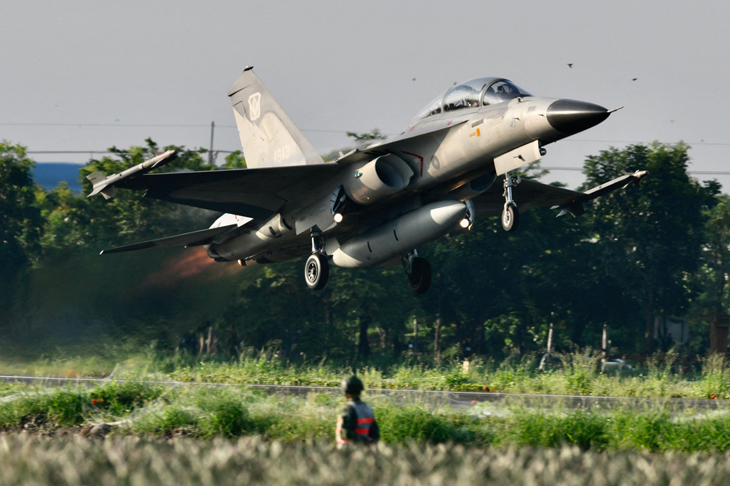
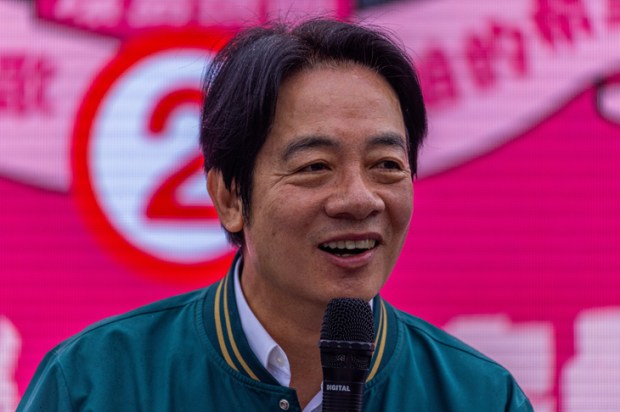

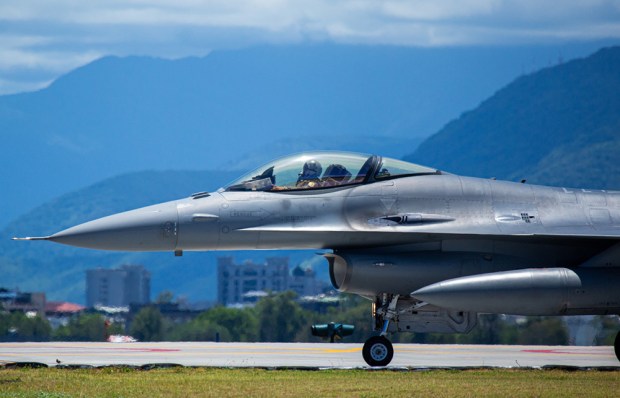
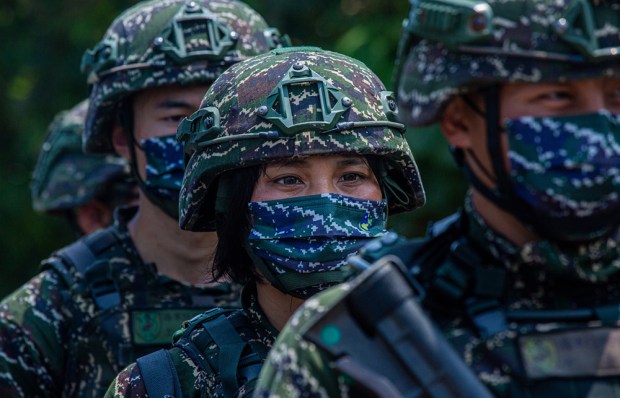
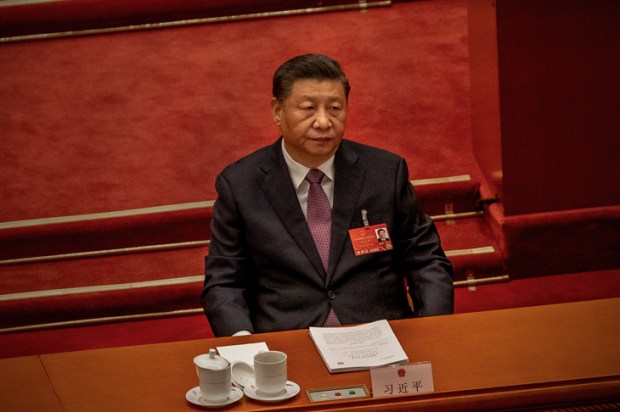
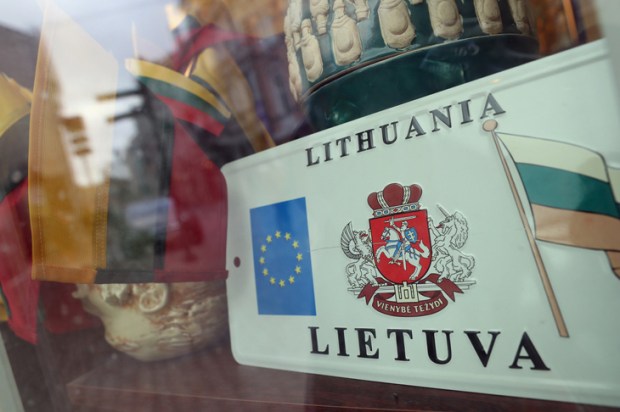






Comments
Don't miss out
Join the conversation with other Spectator Australia readers. Subscribe to leave a comment.
SUBSCRIBEAlready a subscriber? Log in